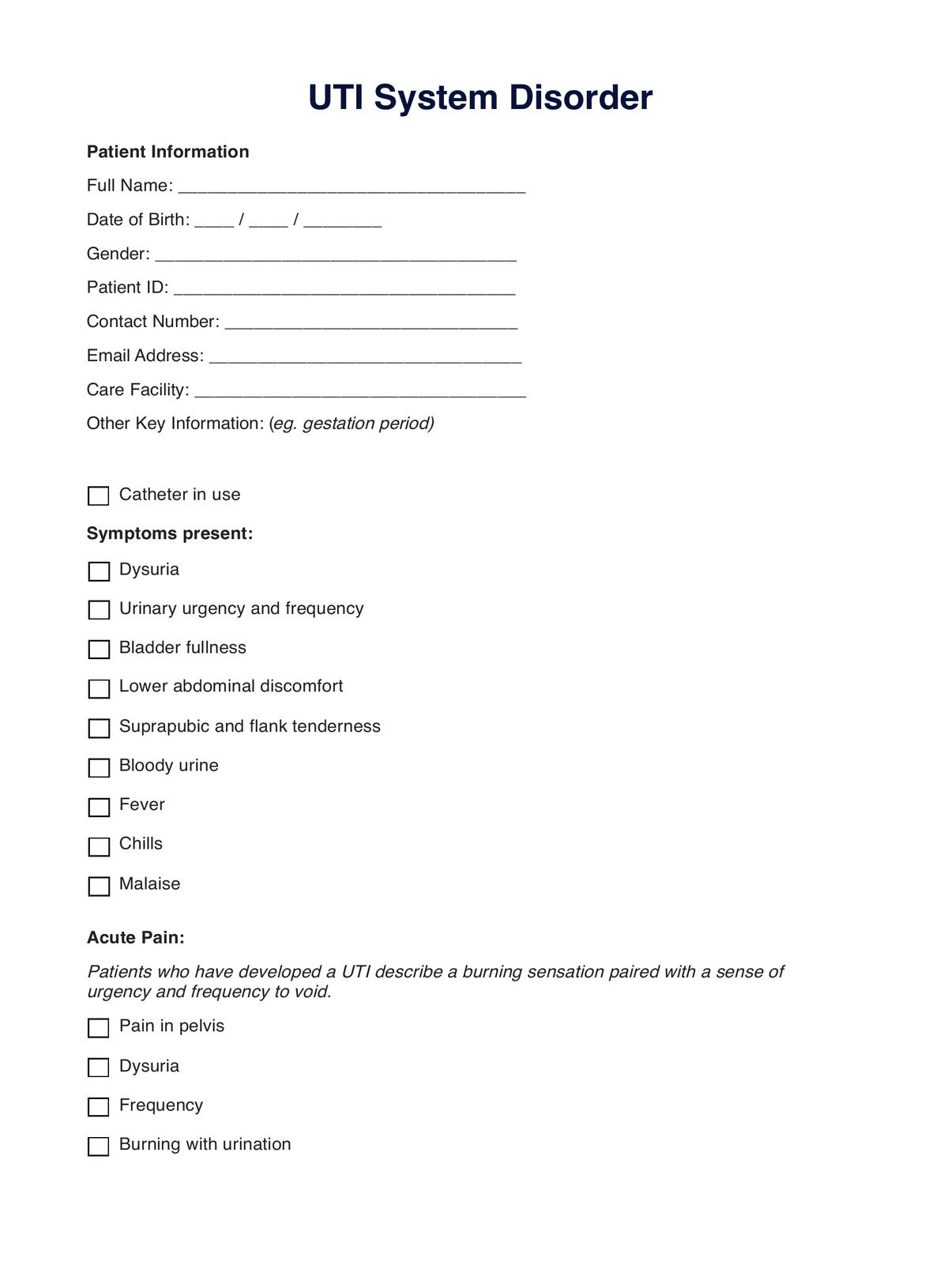To create a comprehensive system disorder template for UTI management, simply create a customized plan from the scaffolding provided by Carepatron and cater to the patient's needs through the key aspects of assessment, diagnosis, planning, intervention, and evaluation.

UTI System Disorder Template
Creating a UTI System Disorder Template is essential to comprehensive care for patients. Discover the ins and outs of what to include in your plans with this guide!
Use Template
UTI System Disorder Template Template
Commonly asked questions
These valuable templates can be used at any point of the treatment journey for a patient with a UTI to track, monitor, and plan all interventions both by healthcare professionals and the patient themselves.
UTI system disorder templates are used as a planning tool for efficient and confident care delivery. They are designed to be customized and meet the individual patient's needs.
EHR and practice management software
Get started for free
*No credit card required
Free
$0/usd
Unlimited clients
Telehealth
1GB of storage
Client portal text
Automated billing and online payments











